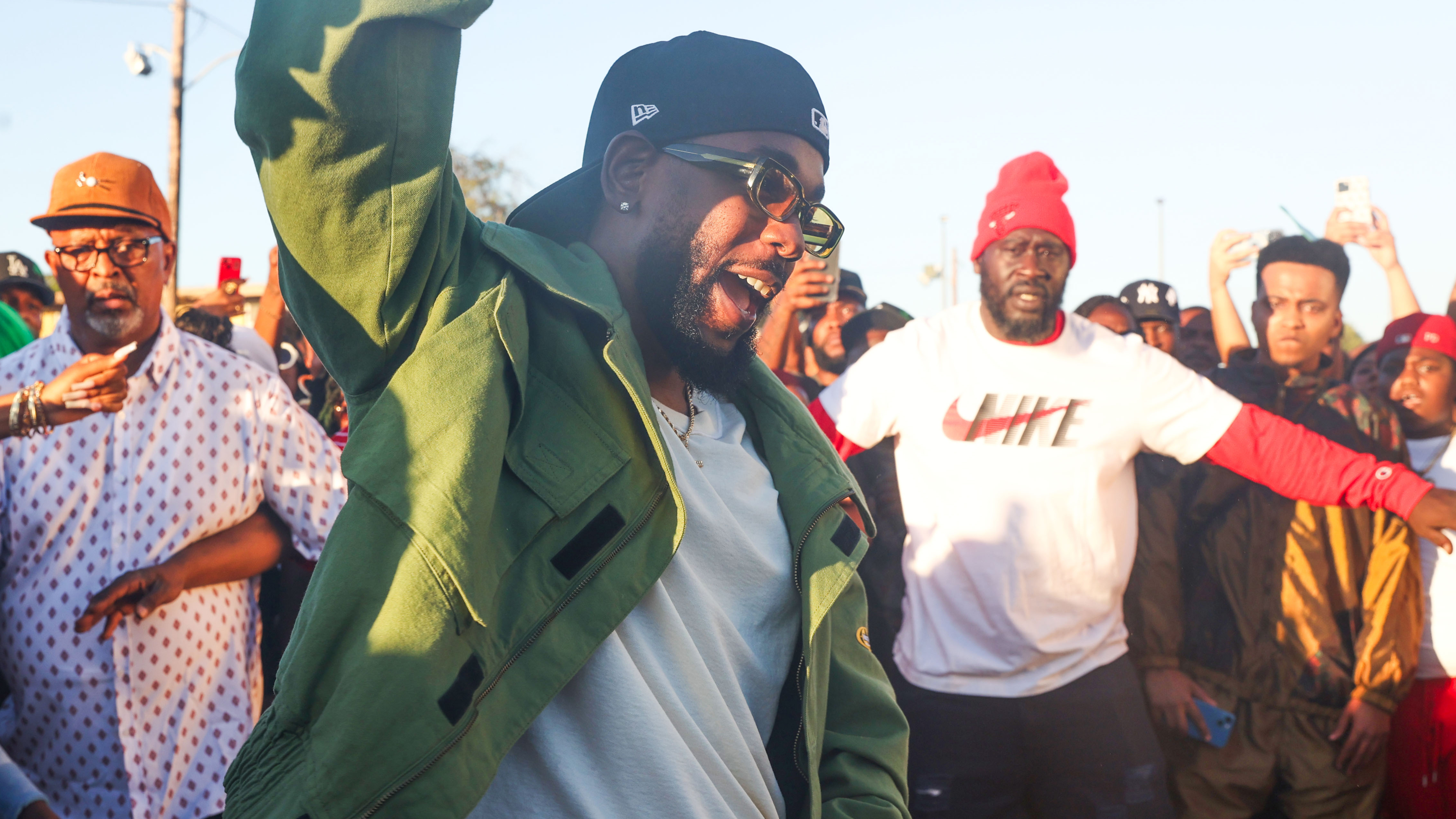“Years from now kids are going to be like, ‘Damn, remember when Kendrick and Drake battled?’”: The story of Kendrick Lamar's ferocious, chart-smashing diss track Not Like Us
It was the fastest rap song to reach 100 million streams

Diss tracks have been a prominent part of hip-hop culture since the 1980s, with heavyweights like 2Pac, Jay-Z, Nas and Biggie Smalls all solidifying their own names via venomous lyrical assaults on rival MCs.
But the war that raged between two of the world's biggest living rappers, Kendrick Lamar and Drake, from March to May 2024, plumbed new depths.
Tensions between the pair had been softly bubbling for over a decade, but a fuse was lit when J. Cole inadvertently irritated Lamar by suggesting on his track First Person Shooter that he, along with K.Dot and Drake, were “the big three” of the current hip-hop era.
Kendrick responded in a fiery feature on Metro Boomin and Future’s track Like That, trashing the idea of that “big three” and declaring: “It’s just big me.”
It was a quip that kicked Drake into action, prompting a series of jabs between the pair that initially showed restraint, skating around the major issues.
However, after Drake started making sweeping accusations about Kendrick's family life, Kendrick drove into a full-on character assassination.
The rivalry reached boiling point with Not Like Us.
Want all the hottest music and gear news, reviews, deals, features and more, direct to your inbox? Sign up here.
At the core of the song was the allegation that Drake has a history of predatory behaviour towards teenage girls. Kendrick packaged that theme into neat, witty soundbites that instantly blew up online.
DJ Mustard's production on the track was an essential ingredient. Structured around a booming hip-hop instrumental, powerful in the low frequencies and fizzing with sharp string sections, the Not Like Us instrumental was one of dozens of beats Mustard sent to Lamar during the months leading up to the single release.
Later, the renowned producer told Variety how that beat relied heavily on the sampling work of Sean Momberger, who chopped up a Monk Higgins cover of Ray Charles' track I Believe To My Soul and added some extra piano before delivering it to Mustard.
The beatmaker pitched up the song's evocative dual horn and string lines, added a rhythm section, and sent the final product to Kendrick in early April. He received a love heart reaction and a simple text back saying: 'This one is crazy.’
As Lamar never tells producers which beats he's used until the tracks come out, it wasn't until Mustard was driving home from a baby shower that he heard the final single and realised his concoction was about to become a smash hit.
"It was literally just a normal day," Mustard explained. "I didn't think [that beat] was going to be Not Like Us, but it ended up being that.”
He added: “When the biggest artists like Kendrick and Drake are rap-battling, years from now kids are going to be like, ‘Damn, remember when Kendrick and Drake battled?’ The whole story behind this shit is going to be a big part of history."
Within hours of its release, videos started surfacing of clubs across the States full of partygoers passionately screaming out the controversial standout lyrics of Not Like Us.
It soon became clear that this war was only ending one way.
Drake may have landed some damaging punches with his penultimate send Family Matters, but when Lamar hit back with this era-defining diss track – dropped just minutes after the release of Family Matters – it was all over.
It's extremely rare for a diss track to pop off commercially and gain widespread coverage outside the obsessive, hyper-locked-in world of hip-hop, but Not Like Us undeniably accomplished that.
The track debuted at No.1 on the Billboard Hot 100, became the fastest rap song to reach 100 million streams (in just nine days), scored Lamar his first-ever UK No.1 single, and is reportedly the most-streamed diss track in Spotify history.
But its impact extends far beyond streaming figures and commercial success. Drake is still one of the world's most popular artists, with some huge singles, plus sold-out arenas and major festival headline shows secured across 2024 and 2025. But amongst the hip-hop community, his reputation has never fully recovered.
Arguably, it was Kendrick's searing final verse that buried him. Kendrick spent 32 bars ruthlessly dissecting Drake's relationship with the Atlanta rap scene, drawing allusions to Georgia's history of slavery and building his picture of Drake's inauthenticity.
The suckerpunch? "You run to Atlanta when you need a few dollars/No, you not a colleague, you a fucking coloniser.”
In a recent conversation with pop superstar and frequent collaborator SZA, Kendrick reflected: “Not Like Us is the energy of who I am, the type of man I represent. This man has morals, he has values, he believes in something.”
That idea is clearest in the verse questioning Drake's ties to Atlanta.
In January 2025, it was reported that Drake had sued Universal Music Group – his record label, as well as Lamar's. The suit alleged that Not Like Us was defamatory.
Elsewhere, Kendrick said that the character he's expressing on Not Like Us “can recognise his mistakes and not be afraid to share the mistakes and can dig deep down into fear-based ideologies or experiences to be able to express them without feeling like he's less of a man.”
He added: “I believe in love and war, and I believe they both need to exist.”
There might not have been much love expressed in Not Like Us, but on the war front, this track was brimming with targeted, intelligent, scathing lyrical violence.
In terms of content, delivery, timing, and impact – both in a commercial sense and amongst hip-hop lovers across the world – this is undoubtedly one of the best rap disses in history.
Fred Garratt-Stanley is a freelance music, culture, and football writer based in London. He specialises in rap music, and has had work published in NME, Vice, GQ, Dazed, Huck, and more.
You must confirm your public display name before commenting
Please logout and then login again, you will then be prompted to enter your display name.



